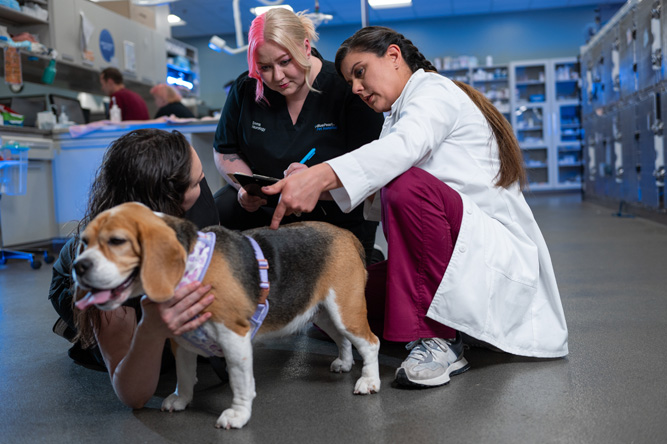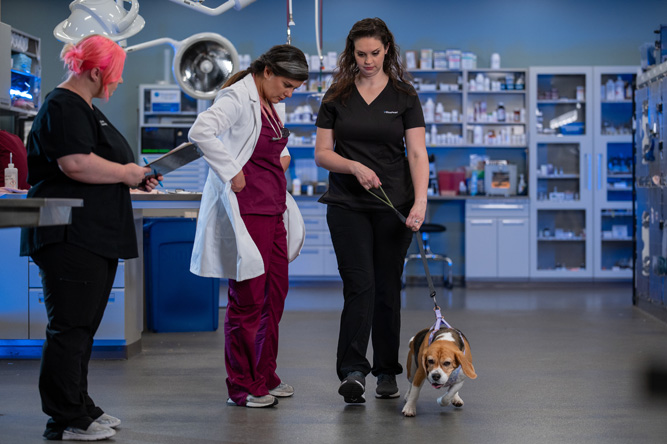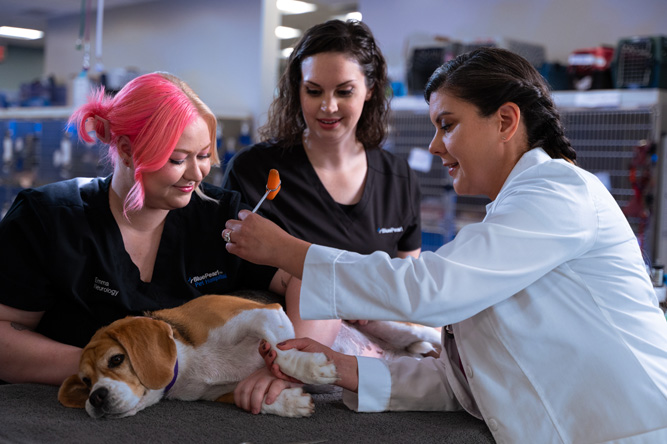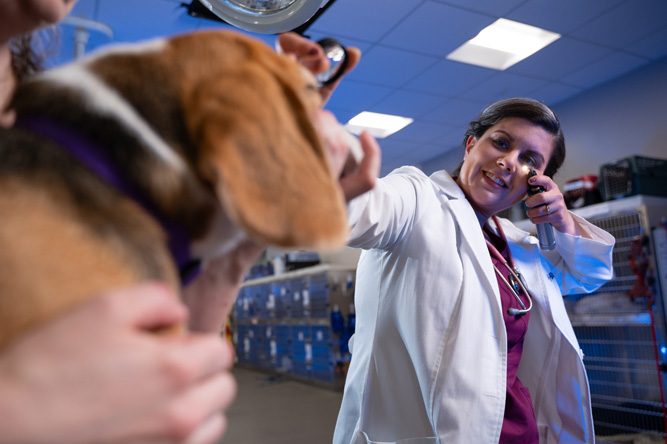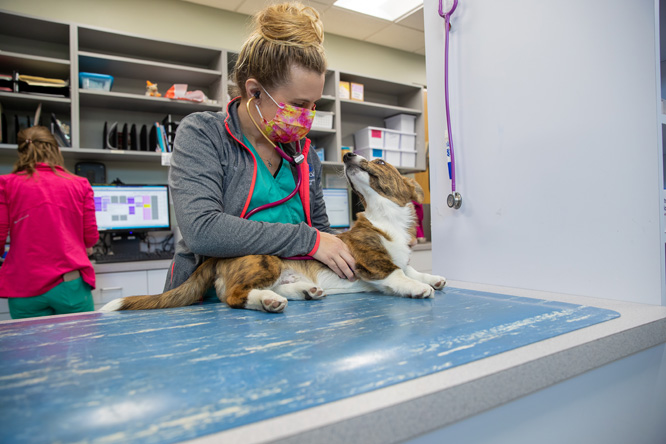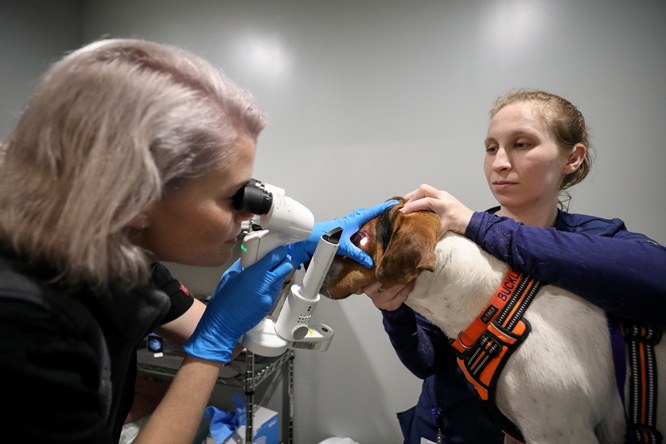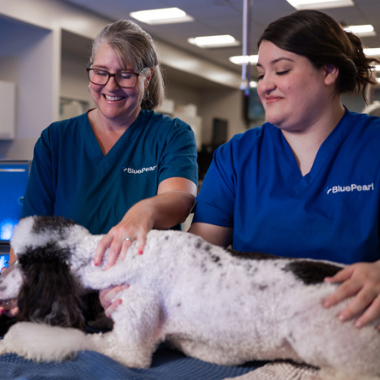Pet neurology by BluePearl.
Advanced care for what matters most – helping your pet live a longer and better life.
We understand that seeing your pet experience unusual symptoms or act out of the ordinary can be stressful – especially if you don’t know what’s wrong. Fortunately, our veterinary neurology team is made up of experts in diagnosing and treating diseases of the nervous system, and we’re here to help.
Our commitment is not just to treat illnesses; it’s to enhance the well-being of your pet and be with you every step of the way.
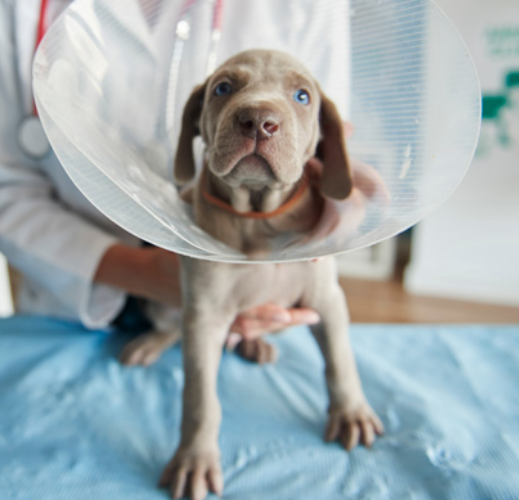
Conditions we treat.
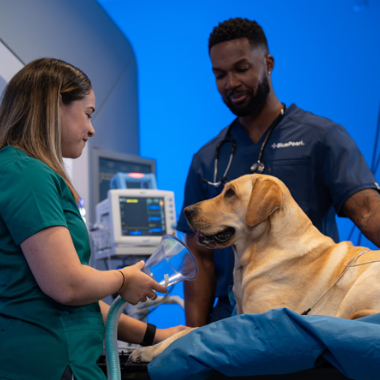
If your pet has a neurological condition, you’ll have an entire neurology team helping to improve your pet’s quality of life so you can get back to what matters most – spending precious moments together.
- Epilepsy and other seizure disorders
- Brain and spinal cord trauma
- Disc herniation and other lumbosacral disorders
- Brain tumors
- Neuromuscular disease
- Encephalitis
- Meningitis
Services we offer.
Your pet will receive unparalleled medical care during their time at the hospital (and they’ll be spoiled with love and attention, too).
Advanced diagnostics
Your pet can’t tell us what’s wrong, so we use sophisticated diagnostics and imaging tools to uncover the source of the problem.
- MRI
- CT
- Cerebrospinal fluid (CSF) analysis
- Radiography (x-rays)
- Electrodiagnostic testing
- Nerve and muscle biopsies
Treatment plans
Just as no two patients are the same, neither are their treatment plans. Our neurology team has experience with a range of advanced procedures and minimally invasive options to get your pet on the path to wellness, including:
- Medication
- Rehabilitation
- Neurosurgery
Our board certified specialists and neurology team.
Experience makes all the difference.
Our neurology team is made up of veterinarians, vet technicians and assistants, and support staff with rigorous training and experience in specialty medicine. The team works hand in hand to provide the comprehensive, compassionate care your pet needs and deserves. Because we’re a multidisciplinary hospital, the team can consult the expertise of other specialty departments, too.
Sarita Miles
MS, DVM, DACVIM (Neurology)Dr. Sarita Miles was selected as the nation’s first clinical fellow in veterinary neurology & neurosurgery at Colorado State University, where she stayed on as faculty. She is passionate about case management, building connections with clients and patients, and taking a hands-on approach to veterinary neurology & neurosurgery. She is certified in disc arthroplasty and neurosurgery.
Dr. Miles’ special interests include acute intervertebral disc disease, inflammatory diseases of the central nervous system, and traumatic brain injuries.
- Diplomate, American College of Veterinary Internal Medicine (Neurology)
- Fellowship, Neurology & Neurosurgery, Colorado State University, Fort Collins
- Residency, Neurology & Neurosurgery, University of Florida, Gainesville
- Internship, Small Animal Medicine & Surgery, University of Tennessee, Knoxville
- Doctor of Veterinary Medicine, University of Florida, Gainesville
- Master of Science, Veterinary Science, University of Florida, Gainesville
- Bachelor of Science, Biology, Hampton University, VA
As part of a military family, Dr. Miles has lived in many places around the world and she considers Virginia her home. Outside of work, she loves to be “out and about,” exploring nature, trying new restaurants, traveling, playing team sports, and participating in other health and wellness activities.
What to expect.
We want you to be prepared for your pet’s visit to the neurologist, so you have one less thing to worry about. Our entire BluePearl team will be with you every step of the way.
Before your visit
- Make an initial appointment by calling us directly or via referral from your pet’s primary vet.
- We’ll get records from your primary or emergency vet before your first visit and collaborate with them to discuss your pet’s history and current condition.
During your visit
- When possible, we’ll examine your pet with you by their side to make them more comfortable. If additional tests are needed for a diagnosis, we’ll discuss those options with you.
- You’ll have plenty of time and opportunity to ask questions as we go over your pet’s diagnosis together.
- Before you leave, you’ll receive a detailed treatment plan, discharge instructions and any recommended medications. We’ll schedule a recheck appointment and make sure you’re aware of any symptoms you should watch out for at home.
After your visit
- Our team will continue to partner with your primary veterinarian as part of the ongoing management of your pet’s care.
- You know your pet better than anyone, and you play a crucial role in their treatment plan. If you have any concerns about providing care at home (such as giving medication, maintaining a specific diet or monitoring your pet’s symptoms), let us know – we’re here for you.
